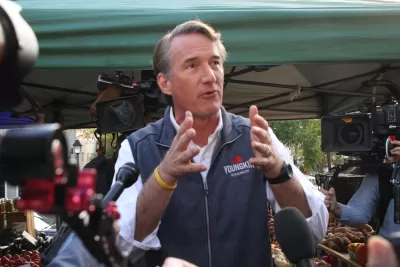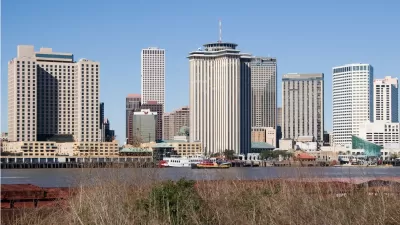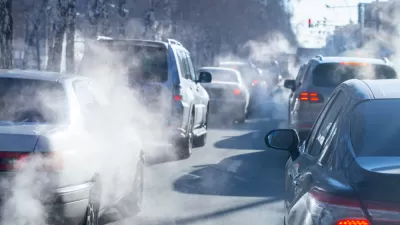New Virginia Governor Glenn Youngkin made promises on the campaign trail to reverse the state's commitment to climate reductions.

An opinion piece by Ivy Main, written for the Virginia Mercury, reports "unfortunate signs" that new Virginia Governor Glenn Youngkin is preparing to be less the moderate Republican he promised to be, and more a "burn-the-house-down extremist" on environmental policy.
The first piece of evidence for these strong words are the governor's decision on day one of his tenure to sign an executive order notifying the Virginia Department of Environmental Quality of his intention to withdraw Virginia from the Regional Greenhouse Gas Initiative. According to Main, and as detailed in a separate article by Patrick Wilson for the Richmond Times-Dispatch, Gov. Youngkin might require legislative approval from a still-Democrat-controlled State legislature to accomplish that goal.
Here's how Wilson describes the RGGI program:
Energy producers in states that participate in RGGI trade emission reductions for credits, or buy credits to emit carbon dioxide past a cap. The revenue the state gets from the program is directed to programs that help low-income people reduce energy usage — thereby lowering their cost of electricity — and for programs combating sea level rise in coastal areas.
Main's other evidence is Gov. Youngkin's decision to nominate Trump-era EPA chief Andrew Wheeler as the state's secretary of natural resources—a move that would also require approval from the State Legislature.
The source article notes that GOP legislators are following the new governor's lead, filing new legislation that would work against efforts to reduce greenhouse gas emissions in the state.
FULL STORY: The GOP offensive against climate action begins

Trump Administration Could Effectively End Housing Voucher Program
Federal officials are eyeing major cuts to the Section 8 program that helps millions of low-income households pay rent.

Planetizen Federal Action Tracker
A weekly monitor of how Trump’s orders and actions are impacting planners and planning in America.

Ken Jennings Launches Transit Web Series
The Jeopardy champ wants you to ride public transit.

Congress Moves to End Reconnecting Communities and Related Grants
The House Transportation and Infrastructure Committee moved to rescind funding for the Neighborhood Equity and Access program, which funds highway removals, freeway caps, transit projects, pedestrian infrastructure, and more.

From Throughway to Public Space: Taking Back the American Street
How the Covid-19 pandemic taught us new ways to reclaim city streets from cars.

Opinion: Transit Agencies Must View Service Cuts as Last Resort
Reducing service could cripple transit systems by pushing more riders to consider car ownership, making future recovery even less certain.
Urban Design for Planners 1: Software Tools
This six-course series explores essential urban design concepts using open source software and equips planners with the tools they need to participate fully in the urban design process.
Planning for Universal Design
Learn the tools for implementing Universal Design in planning regulations.
Heyer Gruel & Associates PA
Ada County Highway District
Institute for Housing and Urban Development Studies (IHS)
City of Grandview
Harvard GSD Executive Education
Toledo-Lucas County Plan Commissions
Salt Lake City
NYU Wagner Graduate School of Public Service





























